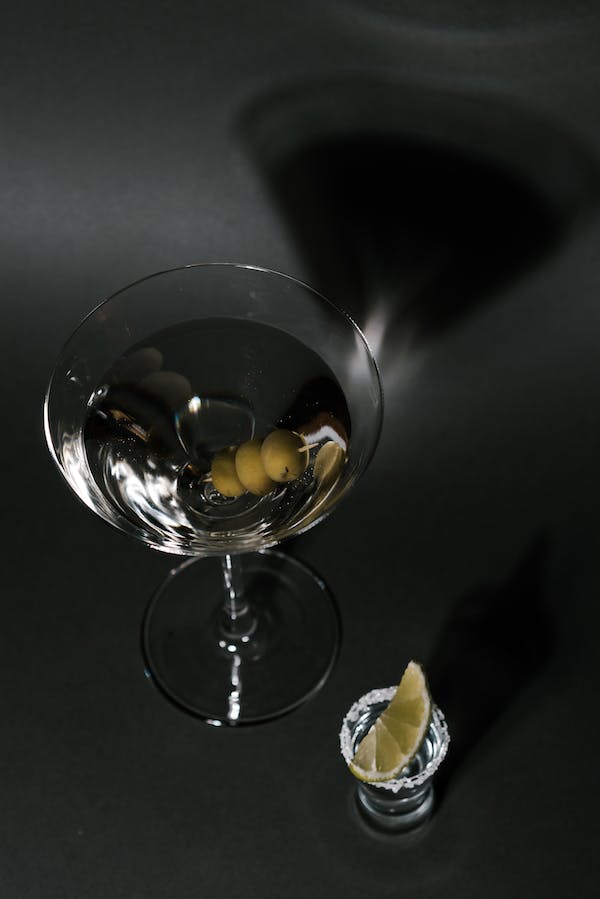
Tequila and vodka are two of the most popular spirits in the world. Both are versatile and can be enjoyed in various ways, from sipping to mixing in cocktails. However, when it comes to comparing the two, many people wonder which one is stronger. In this article, we will explore this question and provide a clear answer.
Table of Contents
Understanding Alcoholic Strength
Alcoholic strength is determined by the amount of alcohol present in a drink, usually measured in Alcohol by Volume (ABV) or Proof. ABV is the percentage of alcohol in a drink, while Proof is double the ABV. For example, a liquor with 40% ABV is 80 Proof.
Tequila and vodka are both distilled spirits with varying levels of alcohol content. The alcohol percentage of tequila’s strongest variant reaches 60%, while vodka is at 95% ABV. Some vodka brands have an ABV as high as 96%, making it often considered the stronger liquor compared to tequila.
However, it’s important to note that the strength of a drink doesn’t necessarily correlate with its effects on the body. Factors such as the amount consumed, the rate of consumption, and the individual’s tolerance level can all affect the way alcohol affects a person.
It’s also important to be aware of the recommended serving sizes for alcoholic beverages. The National Institute on Alcohol Abuse and Alcoholism defines a standard drink as 14 grams of pure alcohol, which is roughly equivalent to 12 ounces of beer, 5 ounces of wine, or 1.5 ounces of distilled spirits. Consuming more than the recommended amount can increase the risk of negative health effects and alcohol-related accidents.
Tequila: An Overview
Tequila is a distilled spirit made from the blue agave plant, which is native to Mexico. It is primarily produced in the state of Jalisco, Mexico, and has been a popular drink for centuries. Tequila is a versatile spirit that is often used in cocktails and mixed drinks, but it can also be enjoyed neat or on the rocks.
Production Process
The production process of tequila involves several steps. First, the agave plant is harvested, and the leaves are removed to reveal the heart of the plant, which is called the piña. The piñas are then roasted in ovens or pits to break down the complex carbohydrates into simple sugars.
After roasting, the piñas are crushed to extract the juice, which is then fermented. The fermentation process converts the sugars into alcohol, which is then distilled to produce tequila. The type of tequila produced depends on the aging process and the percentage of agave used in the production.
Alcohol Content
The alcohol content of tequila can vary depending on the type of tequila and the percentage of agave used in the production process. The standard strength of tequila is generally the same as that of vodka, with a maximum of 110 proof, which is a pure blue agave plant product with the NOM (Norma Oficial Mexicana) stamp. However, some tequila brands may have a higher alcohol content, reaching up to 140 proof.
 photo credit: www.pexels.com
photo credit: www.pexels.com
Vodka: An Overview
Production Process
Vodka is a clear, odorless, and tasteless distilled spirit that is primarily made from grains or potatoes. The production process involves fermenting the starch from the grains or potatoes into alcohol, which is then distilled to increase the alcohol content and remove impurities. The resulting liquid is then filtered and diluted with water to achieve the desired alcohol content.
The production process of vodka is relatively simple and straightforward, which is why it is one of the most popular spirits in the world. However, the quality of vodka can vary depending on the type of grains or potatoes used, the water source, and the distillation process.
Alcohol Content
The alcohol content of vodka can vary from 35% to 50% ABV (alcohol by volume), with the most common being around 40%. However, some premium brands can have a higher ABV, while others can have a lower ABV.
It is important to note that the alcohol content of vodka does not necessarily determine its strength or potency. Other factors, such as the amount consumed, the rate of consumption, and the individual’s tolerance level, can also affect its effects on the body.
Comparing Tequila and Vodka
Flavor Profile
Tequila and vodka have distinct flavor profiles. Tequila is made from the blue agave plant, which gives it a unique flavor profile with hints of earthiness and sweetness. On the other hand, vodka is a neutral spirit that is typically made from grains like wheat or rye. Vodka is known for its lack of flavor, which makes it a popular choice for mixing with other ingredients in cocktails.
Alcohol Strength
When it comes to alcohol strength, tequila and vodka are comparable. Both spirits typically have an alcohol content of around 40%, although this can vary depending on the brand and specific type of tequila or vodka. It is important to note that the alcohol content of a drink can vary depending on how it is prepared and served. For example, a shot of tequila or vodka served straight will have a higher alcohol content than a mixed drink that contains other ingredients.
Usage in Cocktails
Tequila and vodka are both versatile spirits that can be used in a variety of cocktails. Tequila is commonly used in margaritas and other Mexican-inspired cocktails, while vodka is a popular choice for classic cocktails like martinis and Bloody Marys. Additionally, both tequila and vodka can be used in a variety of mixed drinks, making them a staple in many bars and restaurants.
Frequently Asked Questions
What are the types of clear liquor?
Clear liquors are distilled spirits that are transparent in color. Some of the most popular types of clear liquor include vodka, gin, rum, tequila, and white whiskey. These liquors are often used as the base for cocktails and mixed drinks.
Is tequila stronger than rum?
Tequila and rum are both distilled spirits, but they have different alcohol content and flavor profiles. Tequila is made from the blue agave plant and has a minimum alcohol content of 35%. Rum, on the other hand, is made from sugarcane and has a minimum alcohol content of 40%. Therefore, rum is generally considered to be stronger than tequila.
Which alcohol is the strongest?
The alcohol content of a distilled spirit is measured in terms of Alcohol by Volume (ABV). The strongest distilled spirit is typically absinthe, which has an ABV of up to 89.9%. However, it is illegal in many countries due to its high thujone content. Among the more commonly consumed liquors, Everclear is one of the strongest, with an ABV of up to 95%.
Does tequila get you drunk faster than vodka?
The rate at which alcohol is absorbed into the bloodstream depends on several factors, including the alcohol content of the drink, the amount of alcohol consumed, and the individual’s body weight and metabolism. Therefore, it is difficult to say whether tequila or vodka will get you drunk faster. However, tequila is often consumed in shots, which can lead to faster absorption of alcohol and a quicker onset of intoxication.
Vodka vs tequila taste
Vodka and tequila have distinct taste profiles. Vodka is a neutral spirit that is often described as having a clean, crisp taste. Tequila, on the other hand, has a more complex flavor profile that can range from sweet and fruity to spicy and earthy, depending on the type of tequila and how it is aged. Ultimately, the taste of vodka vs tequila comes down to personal preference.
Conclusion
Both tequila and vodka are popular spirits that offer unique experiences in terms of taste, preparation methods, and their respective impacts. While tequila is made from the blue agave plant and has a distinct flavor profile, vodka is typically made from grains like wheat, rye, or potatoes and has a neutral taste.
When it comes to alcohol content, vodka is generally stronger than tequila, with a typical ABV level of 40%. Tequila, on the other hand, is commonly available at 38% or 40% ABV, although some brands may offer higher ABV levels. However, the difference in alcohol content is marginal and may not always be noticeable when mixing cocktails or drinking shots.
Related Posts
If you’re interested in learning more about whiskey and cocktails, here are some related posts that you might find interesting:
- What is Moonshine Whiskey: A Guide to the Illicit Spirit – This post provides a comprehensive guide to moonshine whiskey, including its history, production, and taste. It also includes some tips on how to enjoy moonshine whiskey at home.
- What Does an Old Fashioned Cocktail Taste Like? – The Old Fashioned cocktail is a classic drink that has been around for over a century. This post explores the ingredients and flavors that make up this iconic cocktail, as well as some tips on how to make it at home.
- How to Easily Open Knob Creek Bottles: Tips and Hacks – If you’re a fan of Knob Creek bourbon, you might find this post helpful. It provides some tips and hacks for opening Knob Creek bottles, which can be a bit tricky due to the wax seal on the bottle.
- What Color is Bourbon? – Bourbon is a type of whiskey that is known for its distinctive color. This post explains what gives bourbon its color, as well as some of the other characteristics that make it unique.
- Jack Daniel’s Bonded Tennessee Whiskey Price: How Much Can You Expect to Pay? – If you’re curious about Jack Daniel’s Bonded Tennessee Whiskey, this post provides some information on its price and availability. It also includes some tips on how to enjoy this popular whiskey.



